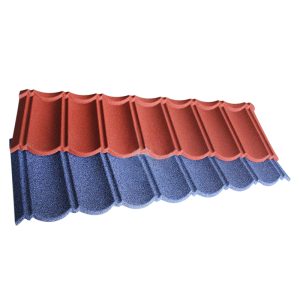Roofing nails play a critical role in securing roofing materials to the roof deck. Using the right type of roofing nail is essential for the longevity and stability of your roof. In this guide, we will discuss the importance of using the right type of roofing nail, common roofing nail materials, different types of roofing nails, and their applications.
The Importance of Using the Right Type of Roofing Nail
Using the correct type of roofing nail is essential for a successful roofing installation. The right nail ensures that the roofing material is firmly attached to the roof deck, preventing leaks and other issues that can arise from improper installation. Additionally, using the appropriate nail can help maintain the integrity of the roofing material and prolong its lifespan.
Common Roofing Nail Materials
Roofing nails are commonly made from materials such as galvanized steel, aluminum, copper, and stainless steel. Each material has its advantages and disadvantages, and the choice of material depends on the type of roofing material being installed and the specific requirements of the project.
Types of Roofing Nails
- Galvanized Roofing Nails: These nails are made from steel and coated with a layer of zinc to protect them from rust and corrosion. They are a popular choice for use with asphalt shingles and other roofing materials.
- Aluminum Roofing Nails: Aluminum nails are lightweight, corrosion-resistant, and suitable for use with metal roofing and other materials that may react with galvanized nails.
- Copper Roofing Nails: Copper nails are corrosion-resistant and ideal for use with copper roofing materials or other materials that may react with galvanized or aluminum nails.
- Stainless Steel Roofing Nails: Stainless steel nails are highly resistant to corrosion and are ideal for use in coastal areas or other environments where corrosion is a concern.
Applications
- Asphalt Shingles: Galvanized roofing nails are commonly used for installing asphalt shingles due to their durability and rust resistance.
- Metal Roofing: Aluminum or stainless steel roofing nails are suitable for use with metal roofing materials, as they do not react with the metal and cause corrosion.
- Wood Shakes and Shingles: Galvanized, stainless steel, or copper roofing nails can be used for installing wood shakes and shingles, depending on the specific requirements of the project.
- Slate Roofing: Copper or stainless steel roofing nails are ideal for use with slate roofing materials, as they provide the necessary strength and corrosion resistance.
- Tile Roofing: Stainless steel or copper roofing nails are suitable for use with tile roofing materials, as they provide the necessary durability and corrosion resistance.
Choosing the Right Roofing Nail for Your Project
When selecting roofing nails, consider factors such as the roofing material being installed, the environment in which the roof is located, and the specific requirements of the project. It is crucial to match the nail type to the roofing material to ensure a successful installation.
Conclusion
In conclusion, selecting the right type of roofing nail for your project is essential for a successful roofing installation. By considering factors such as the roofing material, environment, and project requirements, you can choose the appropriate nail type and ensure a long-lasting, durable roof.


